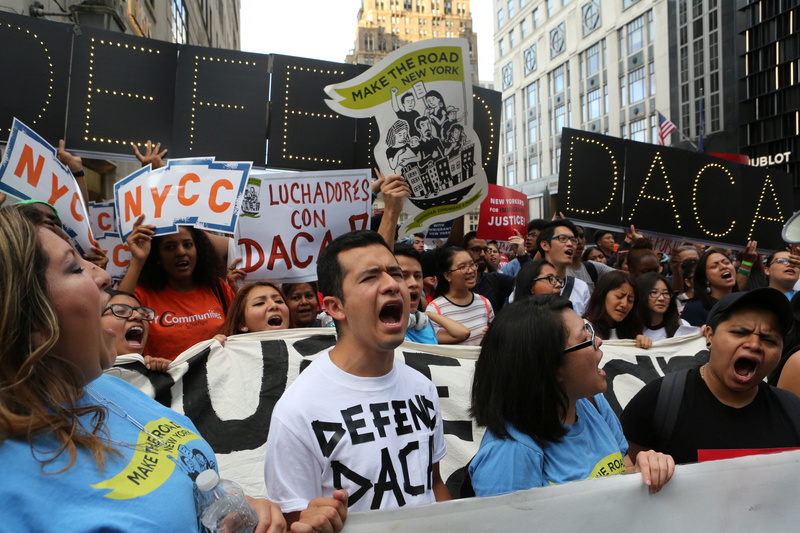President Donald Trump on Tuesday rescinded the Deferred Action for Childhood Arrivals program, which shields from deportation nearly 800,000 young immigrants living in the country illegally after being brought to the US as children.
The move prompted swift backlash across the political spectrum, with Democrats and even some Republicans condemning the decision to end protections for the immigrants. But some, including Kansas Secretary of State and Trump adviser Kris Kobach, had a different take.
“I would suggest go home and get in line, come into the United States legally, then get a green card, then become a citizen,” Kobach told MSNBC’s Hallie Jackson Tuesday. “Do it the right way like so many hundreds of thousands of your countrymen are trying to do. What’s wrong with that? What’s wrong with following the law?”
Kobach’s command to “get in line” is a commonly heard refrain from anti-immigration advocates, and assumes incorrectly that if aspiring immigrants wait long enough or try hard enough, they can lawfully reside in the country.
Attorney General Jeff Sessions, himself, has made similar arguments, telling immigrants to “wait your turn and come lawfully.”
But that's not as easy as it sounds.
For many would-be immigrants, there is no "line" to stand in, or "turn" to wait for. The US immigration system is designed to only admit newcomers who fall into very specific categories. If someone falls outside those circumstances, lawful immigration will be challenging, if not impossible.
The two most common ways to receive a green card include sponsorship by family members or employers - yet many DACA recipients may not have immediate family members who are US citizens or lawful permanent residents. Furthermore, many employers may be reluctant to sponsor immigrant employees due to the cost, time, effort, or logistical challenges.
See the pathways and roadblocks to lawful immigration below:

It should be noted that refugees and asylum-seekers are also eligible to receive permanent residency in the US, but that's a whole other matter - refugees don't necessarily choose to come to the US, the United Nations High Commissioner for Refugees determines which countries they are placed in.
Asylum-seekers do choose to come to the US, but must prove they have a credible fear of facing persecution or torture in their home countries, or they'll be sent back.
But for people who aren't immigrating as refugees or asylum seekers, who don't have immediate family members in the US, and who don't have an employer willing to embark on an expensive and lengthy green card application process, the pathways are limited and difficult to navigate.

